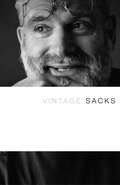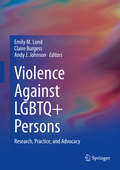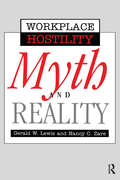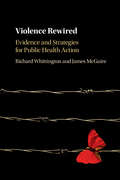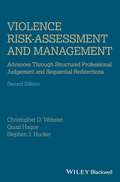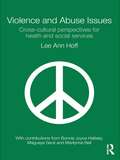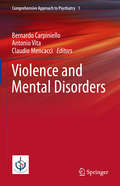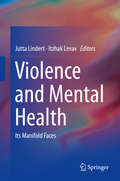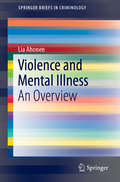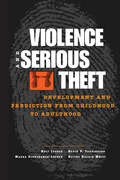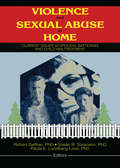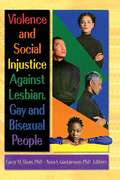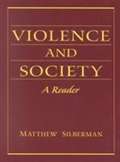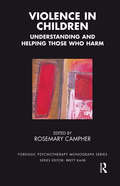- Table View
- List View
Vintage Sacks
by Oliver SacksVintage Readers are a perfect introduction to some of the great modern writers presented in attractive, accessible paperback editions."It is Dr. Sacks's gift that he has found a way to enlarge our experience and understanding of what the human is." --The Wall Street JournalDubbed "the poet laureate of medicine" by The New York Times, Oliver Sacks is a practicing neurologist and a mesmerizing storyteller. His empathetic accounts of his patients's lives--and wrily observed narratives of his own--convey both the extreme borderlands of human experience and the miracles of ordinary seeing, speaking, hearing, thinking, and feeling. Vintage Sacks includes the introduction and case study "Rose R." from Awakenings (the book that inspired the Oscar-nominated movie), as well as "A Deaf World" from Seeing Voices; "The Visions of Hildegard" from Migraine; excerpts from "Island Hopping" and "Pingelap" from The Island of the Colorblind; "A Surgeon's Life" from An Anthropologist on Mars; and two chapters from Sacks's acclaimed memoir Uncle Tungsten.From the Trade Paperback edition.
Vintage Sacks
by Oliver SacksVintage Readers are a perfect introduction to some of the great modern writers presented in attractive, accessible paperback editions."It is Dr. Sacks's gift that he has found a way to enlarge our experience and understanding of what the human is." --The Wall Street JournalDubbed "the poet laureate of medicine" by The New York Times, Oliver Sacks is a practicing neurologist and a mesmerizing storyteller. His empathetic accounts of his patients's lives--and wrily observed narratives of his own--convey both the extreme borderlands of human experience and the miracles of ordinary seeing, speaking, hearing, thinking, and feeling. Vintage Sacks includes the introduction and case study "Rose R." from Awakenings (the book that inspired the Oscar-nominated movie), as well as "A Deaf World" from Seeing Voices; "The Visions of Hildegard" from Migraine; excerpts from "Island Hopping" and "Pingelap" from The Island of the Colorblind; "A Surgeon's Life" from An Anthropologist on Mars; and two chapters from Sacks's acclaimed memoir Uncle Tungsten.From the Trade Paperback edition.
Violence Against LGBTQ+ Persons: Research, Practice, and Advocacy
by Andy J. Johnson Emily M. Lund Claire BurgessAs violence against LGBTQ+ persons continues to be a pervasive and serious problem, this book aims to inform mental health providers about the unique needs of LGBTQ+ survivors of interpersonal and structural violence. Individual chapters analyze unique aspects of violence against specific subpopulations of LGBTQ+ persons in order to avoid ineffective and sometimes simplistic one-size-fits-all treatment strategies. Among the topics covered: Macro Level Advocacy for Mental Health Professionals: Promoting Social Justice for LGBTQ+ Survivors of Interpersonal Violence Intimate Partner Violence in Women’s Same-Sex Relationships Violence Against Asexual PersonsInvisibility and Trauma in the Intersex CommunitySexual and Gender Minority Refugees and Asylum Seekers: An Arduous JourneySexual and Gender Minority Marginalization in Military ContextsNavigating Potentially Traumatic Conservative Religious Environments as a Sexual/Gender Minority Violence Against LGBTQ+ Persons prepares mental health professionals for addressing internalized forms of prejudice and oppression that exacerbate the trauma of the survivor, in order to facilitate healing, empowerment, healthy relationships, and resilience at the intersection of sexual orientation, gender identity, gender expression, and diverse social locations. This is a valuable reference for psychologists, social workers, counselors, nurses, mental health professionals, and graduate students, regardless of whether they are preparing for general practice, treatment of LGBTQ+ clients, or treatment of survivors and perpetrators of various forms of violence.
Violence And Suicidality: Clinical And Experimental Psychiatry
by Robert Plutchik Alan Apter Herman M. van PraagFirst published in 1990. This monograph series, published under the auspices of the Department of Psychiatry of the Albert Einstein College of Medicine/Montefiore Medical Center, is meant to keep track of important developments in the profession pf psychiatry, to summarize what has been achieved in particular fields, and to bring together the viewpoints obtained from disparate vantage points-in short, to capture some of the excitement ongoing in modern psychiatry, both in its clinical and experimental dimensions. Violence and suicidality have always been major public health issues, but it is only fairly recently that they have become the focus of some major clinical and biological research efforts. This is due partly to a large increase in suicide and homicide rates in the young and partly to a realization that effective management of psychiatric patients cannot be based on categorical diagnosis alone, but requires an understanding of the patient's entire behavioral profile. This volume attempts to describe some of the most important advances in the psychobiological understanding of the behavioral dimensions of suicide and violence that have been made over the last 10 years. It is comprised of papers presented at two symposia held under the auspices of the department of psychiatry of Albert Einstein College of Medicine that were devoted to the topics of violence and suicide.
Violence In The Workplace: Myth & Reality
by Gerald Lewis Nancy ZareVisit www.geraldlewis.com for more information.
Violence Prevention in Education, School, and Club
by Rudi Heimann Jürgen FritzscheThe safety of children in the context of protection from assault and violence is a basic need of our society. This edited volume provides a concise overview of the social education of children and young people for all those responsible who want to provide the necessary impetus in the context of their professional, voluntary or educational activities and who are interested in how to convey this successfully. The handbook includes a basic and prevention section.
Violence Rewired: Evidence and Strategies for Public Health Action
by Richard Whittington James McGuireThis thought-provoking book draws together research from genetics, anthropology, psychology and the social sciences to show that widespread assumptions about the inevitability of human violence are almost entirely a collection of myths. While violence has been a recurring feature of human life, there is no reason to suppose that it is inherent in 'human nature'. On the contrary, patterns of aggressive behaviour are largely learned through experience and even those individuals who have often acted violently can learn to change. Rejecting the speculations of much contemporary writing about human aggression, Violence Rewired presents an evidence-based alternative: a multi-level model of action to reduce violence at both individual and collective levels, linked to public health initiatives developed by the World Health Organization. If humanity is to survive the challenges it faces, a more realistic appraisal of ourselves and our basic tendencies is an indispensable part of the solution.
Violence Risk - Assessment and Management
by Christopher D. Webster Quazi Haque Stephen J. HuckerThis expanded and updated new edition reflects the growing importance of the structured professional judgement approach to violence risk assessment and management. <P><P>It offers comprehensive guidance on decision-making in cases where future violence is a potential issue.Includes discussion of interventions based on newly developed instrumentsCovers policy standards developed since the publication of the first editionInterdisciplinary perspective facilitates collaboration between professionalsIncludes contributions from P.Randolf Kropp, R. Karl Hanson, Mary-Lou Martin, Alec Buchanan and John Monahan
Violence and Abuse Issues: Cross-Cultural Perspectives for Health and Social Services
by Lee Ann HoffAfter centuries of being considered a private matter in most societies, violence and its profound effect on the physical health, mental health, and social well-being of victims and their families, as well as on the assailants themselves, has started to take centre stage as a public issue of worldwide concern. Health and social service providers are in pivotal positions to provide preventive and restorative services to those affected by violent and abusive behaviour. This comprehensive textbook presents theoretical background and practical strategies for doing so, providing a solid knowledge base for good practice in this area. It emphasizes the interdisciplinary aspects of violence and victim/survivor care and addresses violence over the lifespan, covering: child sexual and physical abuse sexual assault of adults battering and emotional abuse of intimate partners elder abuse perpetrators of violence and abuse violence in learning and work environments vicarious trauma and self-care interconnections between various forms of violence, including socially approved violence in the media and in war. This text is an essential resource for qualified practitioners wanting to learn more about this area and for students starting out in health and social care. Each chapter includes case studies and thinking points, and suggestions for application in practice settings. A companion website provides materials for students and educators, enabling the inclusion of violence issues in an already busy curriculum. Lee Ann Hoff is a nurse-anthropologist and crisis specialist. She has published widely and is the author of the award-winning textbook People in Crisis. She has extensive experience as an educator, consultant, clinician, and crisis service manager.
Violence and Aggression: Integrating Theory, Research, and Practice (Advances in Preventing and Treating Violence and Aggression)
by Peter SturmeyThis book provides a concise-yet-comprehensive overview of the broad-ranging topics in the field of violence and aggression. It uses a functional approach that acknowledges the evolutionary, cultural, and operant nature of violence and aggression. The book defines the nature of different forms of violence and aggression; examines epidemiology and risk factors; describes biological, cultural and individual causes; and discusses individual and societal prevention and treatment. Key areas of coverage include: Epidemiology of violence and aggression.Biological and social causes of violence and aggression.Cultural interventions, psychotherapies, and individual biological interventions.The effects of violence and aggression in special populations. Violence and Aggression: Integrating Theory, Research, and Practice is a must-have resource for researchers, academics, and upper-level undergraduate and graduate students in forensic psychology, public health, criminology/criminal justice, developmental psychology, psychotherapy/counseling, psychiatry, social work, educational policy and politics, health psychology, nursing, and behavioral therapy/rehabilitation.
Violence and Mental Disorders (Comprehensive Approach to Psychiatry #1)
by Antonio Vita Bernardo Carpiniello Claudio MencacciThis book explores the issue of violence in detail, taking into account the role of contextual factors, as well as the epidemiology, risk factors and clinical aspects of violence related to the main mental disorders. It also offers practical information on its management – from prevention to treatment.Covering all aspects of the problem of violence in mental disorders, the book is divided into four parts: general aspects; risk factors, phenomenology and characteristics of violence in mental disorders; contexts of violence; and prevention and management of violence in mental health. It also discusses violence in the various settings of mental health system, an aspect that has not previously been fully addressed. The volume is intended for all those who are interested in mental health, including scholars, professionals, and students.
Violence and Mental Health
by Jutta Lindert Itzhak LevavViolence is one of the most important challenges, not only for public health systems, but also for public mental health. Violence can have immediate as well as long-term and even transgenerational effects on the mental health of its victims. This book provides a comprehensive and wide-ranging assessment of the mental health legacy left by violence. It addresses the issues as they affect states, communities and families, in other words at macro-, meso- and microlevels, beginning by describing the impact of violence on neurobiology and mental health, as well as the spectrum of syndromes and disorders associated with different forms of violence. The work moves on to tackle violence at the international--and intranational--level before zeroing in on the nature of violence in communities such as villages or city districts. It also examines the results of violence in the family. Each type of violence has distinct effects on mental health and in each chapter specific groups are explored in depth to demonstrate the heterogeneity of violence as well as the diversity of its outcomes in the realm of public mental health. Finally, the book addresses the notion of 'undoing violence' by detailing case studies of effective interventions and prevention occurring in countries, communities and families. These cases give us pause to reflect on the nature of resilience and dignity in the context of violence and mental health. All the chapters have been written by leading authors in the field and provide a state-of-the-art perspective. The authors, from different fields of expertise, facilitate interdisciplinary and international insights into the impact of violence on mental health.
Violence and Mental Illness: An Overview (SpringerBriefs in Criminology)
by Lia AhonenThis brief summarizes the existing body of knowledge about the links between mental illness and violence, recommends improved methods to deal with potentially violent individuals with mental illness, and identifies pressing implementation and research needs. In public perception and media reports, mental illness and violence - particularly gun violence - are unquestionably linked. However, empirical research presents a more nuanced and complex view of this relationship.Taking into account differences between youth and adults, as well as gender and racial difference, this innovative volume will be useful to policy-makers, legislators, researchers and students interested in addressing the growing public concern about mentally ill individuals at risk for violence.
Violence and Mental Illness: Rethinking Risk Factors and Enhancing Public Safety (Psychology and Crime)
by Eric B. Elbogen Nico VerykoukisShows that the myth that mental illness is strongly linked to violence makes us all less safeMass shootings have become a defining issue of our time. Whenever the latest act of newsworthy violence occurs, mental illness is inevitably cited as a preeminent cause by members of the news media and political sphere alike. Violence and Mental Illness: Rethinking Risk Factors and Enhancing Public Safety exposes how mental illness is vastly overemphasized in popular discussion of mass violence, which in turn makes us all less safe.The recurring and intense focus on mental illness in the wake of violent tragedy is fueled by social stigma and cognitive bias, strengthening an exaggerated link between violence and mental illness. Yet as Eric B. Elbogen and Nico Verykoukis clearly and compellingly demonstrate in this book, a wide array of empirical data show that this link is much weaker than commonly believed—numerous other risk factors have been proven to be stronger predictors of violence. In particular, the authors argue that overweighting mental illness means underweighting more robust risk factors, which are external (e.g., poverty, financial strain, inadequate social support), internal (e.g., younger age, anger, substance abuse), or violence-defining (e.g., lacking empathy, gun access, hate group membership). These risk factors need to be taken into consideration when crafting policies that concern public safety, with emphasis on strategies for reducing the viability and acceptability of violence as a choice.
Violence and Serious Theft: Development and Prediction from Childhood to Adulthood
by Helene Raskin White Rolf Loeber David P. Farrington Magda Stouthamer-LoeberIn this volume, top experts in the field of delinquency discuss the implications of the findings of the Pittsburgh Youth Study for current conceptualizations of antisocial behavior. Violence and Serious Theft is unique in that it combines the strengths of three disciplines to explain delinquency in young people: developmental psychopathology, criminology, and public health. The book addresses questions in two main areas: serious offending as an outcome over time and developmental aspects of serious offending; and factors which explain why some young males become violent and/or commit serious crime while others do not. Violence and Serious Theft is a resource for researchers, practitioners and students in developmental, school and counseling psychology; psychopathology, psychiatry, public health and criminology.
Violence and Sexual Abuse at Home: Current Issues in Spousal Battering and Child Maltreatment
by Susan Sorenson Paula Lundberg LoveViolence and abuse that occur behind closed doors are not just personal concerns or issues. Family violence is a major mental health, social service, health care, and criminal justice problem that society cannot continue to ignore. Violence and Sexual Abuse at Home gives you the facts of spouse/partner and child maltreatment, an analysis of the intervention and prevention techniques commonly used, and alternative approaches and theories for understanding and reducing instances of family abuse.The factors behind maltreatment are multiple and diverse. Because there are so many approaches to treating perpetrators and victims, choosing a treatment strategy can sometimes feel overwhelming. Use Violence and Sexual Abuse at Home to help you decide which treatment models will be most effective in particular situations. Don’t risk low success rates with your patients. This comprehensive guidebook can help you refine your treatment strategies, as you better your understanding of: mutual combat the ethical issues and legal mandates involved in reporting family maltreatment biological issues and aggression the causes of the physical maltreatment of children maltreatment of children with disabilities the debate surrounding “parent alienation syndrome” difficulties in diagnosing incest offenders the impact of child sexual maltreatment on the survivor&’s sexuality and sexual functioning the repression, dissociation, and delayed recall of traumatic eventsViolence and Sexual Abuse at Home shows clinicians, researchers, advocates, and other professionals the importance of broadening their perspectives of all types of family maltreatment. Anyone working with people who abuse and/or with adults and children who are or have been abused should understand the developmental, social, psychological, cultural, and biological issues at play in violent home environments.
Violence and Social Injustice Against Lesbian, Gay, and Bisexual People
by Lacey Sloan Nora GustavssonViolence and Social Injustice Against Lesbian, Gay, and Bisexual People helps you look past the stereotypical picture of violence against sexual minorities--the public physical assaults on gay, lesbian, bisexual, and transgendered youth by hypermasculine male thugs--and directs you toward the many daily acts of quiet violence that go on, unhindered, in the workaday settings of our legal, social, educational, and law-enforcement institutions. You’ll learn about the frightening prevelance of complacency, homophobic ignorance, and apathy that pervades our police departments, courts, high schools, and churches. Also, armed with this critical insight and statistical research, you’ll be better equipped to wage a non-violent war of fairness and mutual respect against the daily, senseless violence of policy and practice that threatens to render gay, lesbian, bisexual, and transgendered people unwelcome and battered citizens in their own communities.You’ll find that Violence and Social Injustice Against Lesbian, Gay, and Bisexual People is ideal for aiding social workers, counselors, teachers, and criminal justice officials in removing the unseen acts of violence from the policies and practices of the public sector. These and other specific areas will give you the information and the fortitude necessary to evoke positive change in your community: legal issues relating to same-sex marriage the connection between social injustice and violence violence against sexual minority youth sexual identity and ethnic minorities practice and policy recommendationsAs this book shows, violence against sexual minorities can be subtly woven into the very fabric of some of our most long-standing, respected social institutions. For too long, the sexual minorities of color, for example, and the lesbian who suffers physical assault at the hands of a partner, have had little or no help from social workers, law enforcement, or education for fear of receiving either complete negligence or increased antagonism. But now, in Violence and Social Injustice Against Lesbian, Gay, and Bisexual People, you’ll find the facts and tools necessary for turning the ugliness of communal violence into social justice for people of all sexual orientations.
Violence and Society: A Reader
by Matthew SilbermanFocusing exclusively on the explanation of violence, this anthology examines why violent conduct occurs-whether or not it is defined as a crime. It reflects a distinctive perspective on the social construction of violence as normative conduct, deeply rooted in the cultural traditions of society, and supported by specific legal traditions that are difficult to change. The book also explores the structural origins of social violence, such as the role patriarchal social institutions play in explaining gender violence. A six-part organization contains articles by well-known scholars on the social construction of anger, social inequality and the production of violence, culture: violence and values, family violence, sexual violence, and criminal violence. For individuals seeking to understand the social causes of violence, and working to reduce the level of violence in families, gender relations, and a wide variety of social contexts in which violence appears to be an all too frequent occurrence.
Violence and Vengeance
by Christopher R. DuncanBetween 1999 and 2000, sectarian fighting fanned across the eastern Indonesian province of North Maluku, leaving thousands dead and hundreds of thousands displaced. What began as local conflicts between migrants and indigenous people over administrative boundaries spiraled into a religious war pitting Muslims against Christians and continues to influence communal relationships more than a decade after the fighting stopped. Christopher R. Duncan spent several years conducting fieldwork in North Maluku, and in Violence and Vengeance, he examines how the individuals actually taking part in the fighting understood and experienced the conflict. Rather than dismiss religion as a facade for the political and economic motivations of the regional elite, Duncan explores how and why participants came to perceive the conflict as one of religious difference. He examines how these perceptions of religious violence altered the conflict, leading to large-scale massacres in houses of worship, forced conversions of entire communities, and other acts of violence that stressed religious identities. Duncan's analysis extends beyond the period of violent conflict and explores how local understandings of the violence have complicated the return of forced migrants, efforts at conflict resolution and reconciliation.
Violence in America: Group therapists reflect on causes and solutions
by Robert H. Klein and Victor L. SchermerViolence is a growing problem in American society, and hardly a day goes by that we don’t hear about yet another heart-wrenching episode of mass violence. Such events, unfortunately, are only the most public manifestation of violence in America. The full nature and extent of daily violence, the various and pervasive forms it takes, and the enormous social, emotional, moral, and economic consequences that result, remain largely outside of our awareness. More importantly, our ability to identify the root causes and know how best to effectively intervene remains limited. Most investigations in this field have focused on the individual psychodynamic characteristics of the perpetrators. The underlying group dynamic factors that include consideration of broader social, cultural, socioeconomic, and historical variables have received less attention. This volume brings together for the first time a collection of distinguished group psychotherapists, all of whom have been trained to recognize both individual psychodynamic characteristics and group dynamic factors, to apply the lessons learned through years of clinical practice to arrive at a deeper understanding of the etiology, treatment, and prevention of violence. This book was originally published as a special issue of the International Journal of Group Psychotherapy.
Violence in Animal Cruelty Offenders (SpringerBriefs in Psychology)
by Tia Hoffer Holly Hargreaves-Cormany Yvonne Muirhead J Reid MeloyThis book presents results from a BAU study including 259 active, animal cruelty cases. In addition, there were a total of 495 animal victims including numerous species, but dogs (64%) were the predominant animal victim. The offenders were all male, ranging in age from 17-years old to 82 years old (mean age of 34 years) and 73.44% had arrests for various other crimes prior to and/or following the instant animal cruelty arrest. Sixty percent of the offenders had been arrested for interpersonal violence prior, concurrent and/or post the instant active animal cruelty incident.
Violence in Children: Understanding and Helping Those Who Harm (The Forensic Psychotherapy Monograph Series)
by Rosemary CampherThis book increases the reader's understanding of violent children and the value and vicissitudes of their psychoanalysis and psychoanalytic psychotherapy. It explores various aspects of violence and the attendant emotional, psychological, biological, and social features in children.
Violence in Extreme Conditions: Ethical Challenges in Military Practice
by Eric-Hans Kramer Tine MolendijkAs an organization operating under extreme conditions, the military is often confronted with destructive behavior from individuals, organizations, and societies. Written by experts from a variety of disciplines, this open access book reflects on confrontations with violence under extreme conditions and the various challenges that arise.By examining real first-hand accounts of soldiers’ deployments, the contributions shed new light on the multifaceted and sometimes hidden dynamics of destructive violent behavior and offer an ethical reflection on military practices. In addition, they address topics such as moral decision-making in violent contexts, military trauma, organizational change, and military ethics education.The interdisciplinary exploration of these topics has been the primary focus of Désirée Verweij, who was the Chair of Military Ethics at the Netherlands Defence Academy from 2008 to 2021. The contributions in this book are written in honor of her scholarly achievements and help to ensure that these important issues continue to receive attention. The book will appeal to scholars of military studies, organizational studies and military ethics, and to professionals and decisionmakers in military organizations.
Violence in Families: Integrating Research into Practice (Advances in Preventing and Treating Violence and Aggression)
by Peter SturmeyThis book examines the nature, prevention, and treatment of violence within families. It reviews the definition of contemporary families, emphasizing various structures, including nuclear families, reconstituted families, gay and lesbian families, and recent immigrant families. In addition, the volume describes the nature of and risk factors for family violence from the perspectives of both victims (e.g., infants, children, seniors) and perpetrators (e.g., adolescent family members, women). It identifies the implications and explores strategies for prevention, treatment, and services. In addition, the volume directly addresses practice and evidence-based interventions for individual perpetrators, family interventions, interventions for victims and systemwide interventions (e.g., those involving the courts, police, and national policy). Chapters review the best available quality evidence from randomized controlled trials, systematic reviews, meta-analyses, research syntheses, and evidence-based recommendations from expert panels and government agencies. Case studies illustrate the application of evidence-based practice to violence within the family to demonstrate the effectiveness of the intervention. Topics featured in this book include:Definition and conceptualization of family.Definition and measurement of as well as risk factors for family violence.Family violence in various traditional and nontraditional families.Prevention strategies as well as Individual and family treatments for perpetrators and victims of family violence.Social policy and legal interventions for family violence. Violence in Families is a must-have resource for researchers, professors, and graduate students as well as clinicians, therapists, and other professionals in developmental psychology, family studies, forensic psychology, criminology/criminal justice, public health, psychotherapy/counseling, psychiatry, social work, educational policy and politics, health psychology, nursing, and behavioral therapy/rehabilitation.
Violence in Intimate Spaces: Law and Beyond (Sustainable Development Goals Series)
by Pinki Mathur Anurag Santwana DwivedyThis book provides a textured understanding of intimate violence across the unlimited stretch of human relationships, institutions, and social structures. The volume has been conceptualized with the overarching objective to provide the reader with a collection of thoughtfully selected chapters that critically examine existing literature for an in-depth analysis of institutions through the lens of violence, beyond disciplinary and topical boundaries, from a range of methodologies. The book encourages reflections on the complexities of society, its institutions and gendered norms that enmesh violence and intimate relationships. It further examines the socio-normative contexts within which violence operates as a tool for maintaining inequalities in society. The chapters in this volume attempt to address questions such as: What are the complexities in the relationship between the perpetrator and the victim which sustain and legitimize violence? What are the diverse dimensions of violence in intimate relationships? What role does violence in intimate spaces play in preserving status quo and the pervasive gendered hierarchies within society and its institutions? Who is vulnerable to violence and why? The book covers conversations on intimate space violence and relationships that have not been explored hitherto in mainstream academic debates. The volume pivots violence fundamentally as a product of ‘entitlements’ based on gendered social hierarchies and critical intersectionalities to examine its manifestations in a variety of intimate situations and relationships beyond socio-cultural, religious and geographical boundaries. The book provides invaluable learnings for academics, researchers, students, lawyers, sociologists, social workers, health professionals and policymakers.
